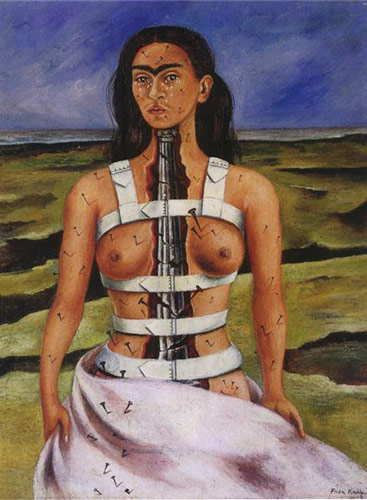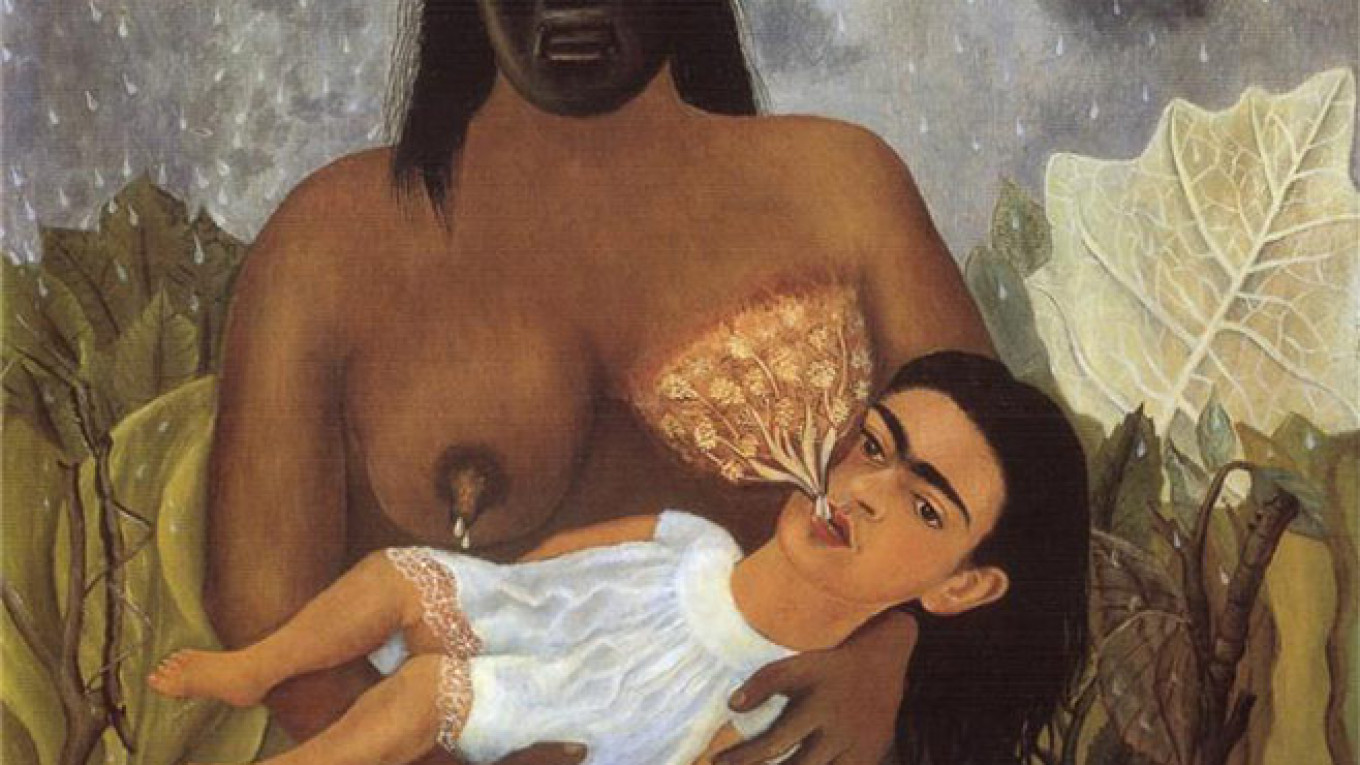Frida Kahlo never made it over the Iron Curtain. The closest she came to the Soviet Union was a brief fling with Leon Trotsky in Mexico City. But earlier this year, visitors had a chance to get up close and personal with her work at Russia's first ever Frida Kahlo retrospective. The exhibition at St.Petersburg's Faberge Museum featured 35 works and over 100 photographs, exploring the evolution of Kahlo as an artist.
A cobalt hue from the museum's adjacent Blue Room illuminated the entrance to the retrospective. The lighting was a fine, coincidental touch — Kahlo drew her first (1907) and last (1954) breath in the Blue House built by her father in the Mexican capital. The works of the monobrowed eccentric proved a huge draw, with visitors crowding around the renowned self-portrait "The Broken Column." The troubling painting depicts Kahlo with a split in her torso revealing a crumbling column in the place of her spine. Kahlo stares defiantly at you through tears while nails stick into her face and body.

"Broken Column"
Kahlo said she was not a surrealist painter. She claimed her work reflected more of her reality than dreams, but this self-portrait, along with others including her portrait of Luther Burbank, "Without Hope" and "My Nurse" are haunting visions of loss, suffering, and death. At the age of 18 her body was a contorted mess, crippled by a bus accident she never fully recovered from. This agony seeps through the canvases. The retrospective is not uplifting, but the way Kahlo transferred her pain into paintings is fascinating.
The director of the Faberge Museum, Vladimir Voronchenko, worked hard to secure the exhibition, fending off competition from other hopefuls. But he has been very pleased by the Russian public's reaction. "She's not the easiest artist to understand," he said in a written statement to The Moscow Times. While this may be true, the popularity of the recent retrospective demonstrates the enduring appeal of her artwork with audiences around the world.
Contact the author at?artsreporter@imedia.ru
A Message from The Moscow Times:
Dear readers,
We are facing unprecedented challenges. Russia's Prosecutor General's Office has designated The Moscow Times as an "undesirable" organization, criminalizing our work and putting our staff at risk of prosecution. This follows our earlier unjust labeling as a "foreign agent."
These actions are direct attempts to silence independent journalism in Russia. The authorities claim our work "discredits the decisions of the Russian leadership." We see things differently: we strive to provide accurate, unbiased reporting on Russia.
We, the journalists of The Moscow Times, refuse to be silenced. But to continue our work, we need your help.
Your support, no matter how small, makes a world of difference. If you can, please support us monthly starting from just $2. It's quick to set up, and every contribution makes a significant impact.
By supporting The Moscow Times, you're defending open, independent journalism in the face of repression. Thank you for standing with us.
Remind me later.






